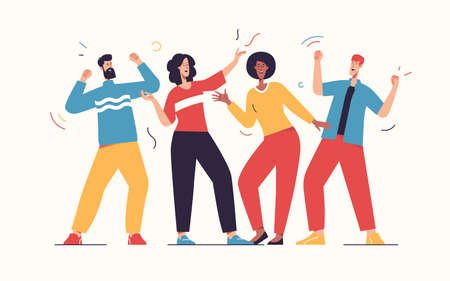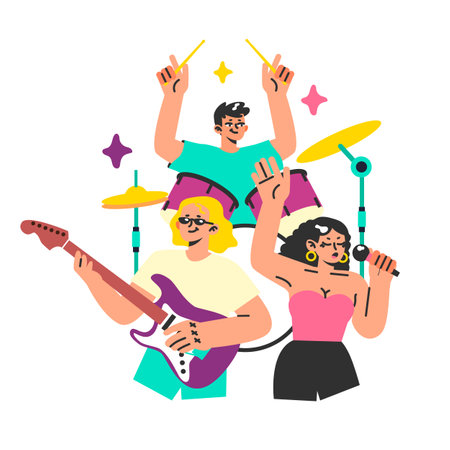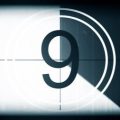Astrology in Modern Dating Culture
For Millennials and Gen Z in the United States, astrology is more than just a hobby—its a cultural touchstone thats changing the way young people approach love and relationships. Instead of relying solely on traditional dating advice or matchmaking, many are turning to zodiac signs and birth charts as conversation starters, ice-breakers, and even compatibility checks.
Why Is Astrology So Popular Among Young Daters?
In a world where dating apps and social media dominate, astrology offers a fun and personalized way to connect. It provides instant topics for discussion and a sense of identity that goes beyond basic likes and dislikes. For many, asking about someone’s sign is just as common as asking what they do for work or their favorite show.
Astrology as a Conversation Starter
Curious about how people use astrology to break the ice? Here are some common ways:
| Situation | How Astrology is Used |
|---|---|
| First Messages on Dating Apps | “Whats your sign?” is a go-to opener |
| First Dates | Comparing sun, moon, and rising signs to spark conversation |
| Building Deeper Connections | Sharing birth charts to find compatibility |
| Jokes and Memes | Sending astrology memes for laughs and relatability |
The Appeal: More Than Just Stereotypes
While some might see astrology as just another trend, it actually gives young people a creative language to talk about their feelings, values, and relationship goals. Instead of following old-fashioned stereotypes about love, Millennials and Gen Z are using the stars to write their own rules—and have fun along the way.
Redefining Relationship Compatibility
For Millennials and Gen Z, astrology has become more than just a fun conversation starter. It’s a tool for exploring romantic compatibility in ways that go beyond what previous generations might have considered. Instead of relying solely on traditional values like family background, religion, or even career status, young adults today are turning to zodiac signs and birth charts to guide their love lives.
From Sun Signs to Full Birth Charts
While older generations may have asked about someone’s job or education first, today it’s not uncommon for “What’s your sign?” to be one of the first questions on a date. But it goes deeper than just sun signs. Many Millennials and Gen Z daters look at full birth charts—an astrological snapshot based on the exact time, date, and place of birth—to get a more complete picture of compatibility.
How Young Adults Use Astrology for Compatibility
| Astrology Tool | How Its Used | Why It Matters |
|---|---|---|
| Sun Sign | The basic zodiac sign based on birthday; often used for initial attraction. | Makes it easy to break the ice and see if personalities might click. |
| Rising Sign (Ascendant) | Represents first impressions and outward behavior. | Helps understand chemistry when meeting someone new. |
| Moon Sign | Shows emotional needs and how someone deals with feelings. | Gives insight into deeper connection potential. |
| Venus & Mars Signs | Venus shows love style; Mars shows passion and drive. | Useful for predicting romantic dynamics and sexual compatibility. |
Beyond Stereotypes: Modern Perspectives on Love
This approach allows young adults to move past stereotypes tied to gender roles, social status, or cultural expectations. Instead, they focus on shared values, emotional needs, communication styles, and unique personality traits revealed by astrology. Apps and online platforms make it easy to generate birth charts and compare them instantly—even turning “chart synastry” into a fun part of dating profiles or first-date conversations.
Zodiac Compatibility vs. Traditional Values
| Traditional Value | Zodiac-Based Approach |
|---|---|
| Family Approval | Chemistry shown in birth chart aspects (like Moon-Venus connections) |
| Cultural Background | Personality match through elements (fire, earth, air, water) |
| Financial Stability | Shared goals found in similar Mars or Saturn placements |
| Religion/Beliefs | Emotional understanding via Moon sign compatibility |
This shift is helping younger generations create relationships that feel more authentic to who they are—not just who society expects them to be. By redefining compatibility through astrology, Millennials and Gen Z are breaking old stereotypes and building new traditions in love.

3. Breaking Down Stereotypes and Stigmas
For decades, astrology in the United States has often been dismissed as “woo-woo,” unscientific, or something only your quirky aunt might be into. But Millennials and Gen Z are rewriting the rules, giving astrology a fresh face that fits today’s diverse and open-minded culture.
Challenging Outdated Views
Unlike previous generations who might have seen astrology as something “out there” or just for fun, younger people are using it to explore identity, relationships, and mental wellness. Social media has played a huge role in this shift. Platforms like TikTok and Instagram are full of creators breaking down complex astrological ideas into relatable memes, stories, and how-to guides.
Old vs. New: How Attitudes Have Changed
| Old Stereotype | Modern Approach (Millennials & Gen Z) |
|---|---|
| Astrology is only for women or “hippies” | Astrology is for everyone—regardless of gender or background |
| Horoscopes are just tabloid entertainment | Birth charts and deeper self-exploration tools for personal growth |
| Astrology lacks diversity and inclusivity | A focus on intersectionality and representation across cultures |
| People hide their interest in astrology due to stigma | Proudly sharing astrology memes, zodiac merch, and compatibility insights online |
Making Astrology More Inclusive
This new wave of astrology is all about breaking barriers. Millennials and Gen Z are bringing more voices into the conversation—highlighting Black astrologers, LGBTQ+ perspectives, and non-Western traditions. They’re questioning the old gatekeepers and making sure anyone who’s curious feels welcome to join in.
Examples of Inclusivity in Modern Astrology:
- Diverse astrology apps with customizable birth chart options for different identities
- Community events (online or IRL) focused on safe spaces for marginalized groups
- Workshops that explore astrology through a multicultural lens—not just Western zodiac signs
The result? Astrology is no longer something people feel they have to hide. It’s become a meaningful tool for self-expression, connecting with others, and breaking free from outdated stereotypes about who can participate—and why it matters.
4. Astrology and Digital Connection
The Rise of Astrology in Dating Apps
Astrology isn’t just for horoscopes in magazines anymore—now it’s a swipe-right factor. Many dating apps in the U.S., like Bumble and Tinder, have added features that let users display their zodiac signs on their profiles. Some even offer compatibility scores based on astrological charts. Millennials and Gen Z are using these tools to filter matches, spark conversations, and break the ice. This new way of connecting is less about rigid compatibility and more about opening up fun, meaningful interactions.
Popular Dating Apps Featuring Astrology
| App Name | Astrology Features | Target Audience |
|---|---|---|
| Bumble | Zodiac sign badge, astrology filters | Millennials, Gen Z |
| Tinder | Add zodiac sign to profile, star sign prompts | Gen Z, Young Adults |
| Co–Star | Astrology-based matching & messaging | Astrology enthusiasts, Millennials |
| OkCupid | Zodiac as part of questions and match algorithm | Diverse age groups, open-minded daters |
Memes: Making Astrology Relatable Online
If you scroll through Instagram or TikTok, you’ll spot astrology memes everywhere. These memes poke fun at each sign’s quirks (“Scorpios be like…”) and offer lighthearted advice about relationships. For Millennials and Gen Z, these memes make astrology feel approachable and fun—not something stuck in the past or too serious to enjoy. Sharing a meme about your “Mercury in retrograde” love life can be a way to bond with others who get the joke.
The Impact of Online Communities
Social media groups, Reddit threads, and Discord servers are buzzing with astrology talk. People share birth charts, relationship stories, and advice based on the stars. These online communities help normalize talking about emotions, boundaries, and expectations—topics that older generations might have avoided. As a result, relationship norms are shifting toward openness and acceptance of individuality.
How Digital Culture is Redefining Relationship Norms Through Astrology:
| Traditional Norms | New Norms (Driven by Digital Astrology) |
|---|---|
| Avoiding topics like emotions early on | Discussing feelings openly from the start (thanks to astrology prompts) |
| Stereotyping partners by gender roles | Focusing on personality traits via birth charts instead of old stereotypes |
| Keeping relationship struggles private | Sharing experiences online for support and advice within astrology communities |
| Basing compatibility only on interests or looks | Considering astrological compatibility alongside other factors for deeper connections |
Through dating apps, memes, and online communities, Millennials and Gen Z aren’t just breaking stereotypes—they’re creating a new digital language for love built around authenticity, humor, and self-discovery.
5. Navigating Authenticity and Self-Discovery
For Millennials and Gen Z, astrology is more than just daily horoscopes or zodiac memes on social media. It’s become a tool for personal growth and self-awareness, helping young Americans explore who they are and what they want in relationships. Instead of following traditional ideas about love, these generations use astrology to dive deeper into their personalities and connect with others on a more authentic level.
Astrology as a Path to Self-Knowledge
Unlike older generations who may have seen astrology as just for fun, many young people now turn to their birth charts to understand their strengths, challenges, and emotional needs. This process often leads them to ask important questions about themselves, such as:
- What do I really value in a partner?
- How do I handle conflict?
- What makes me feel secure and loved?
By reflecting on these questions through the lens of astrology, Millennials and Gen Z are learning how to be honest with themselves—and with potential partners—about what they truly want.
Building Genuine Connections
Astrology also helps young Americans create connections that go beyond surface-level attraction. When someone shares their sun, moon, or rising sign, it can open up conversations about emotions, communication styles, and life goals. This openness breaks down stereotypes and encourages empathy between people from different backgrounds.
How Astrology Supports Authentic Relationships
| Astrology Practice | Benefit for Relationships |
|---|---|
| Comparing Birth Charts (Synastry) | Highlights compatibility and potential challenges early on |
| Learning About Moon Signs | Improves understanding of emotional needs |
| Understanding Mercury Placements | Helps navigate communication differences |
| Discussing Venus Signs | Sparks honest talks about values in love and affection |
Real-Life Examples Among Young Americans
Young people often share their astrology insights on dating apps or during first dates—not as a dealbreaker but as an icebreaker. For example, someone might say, “I’m a Cancer moon, so I really value emotional safety.” This kind of sharing shows vulnerability and invites others to do the same.
The Bottom Line: Growth Through the Stars
Millennials and Gen Z are breaking old stereotypes by using astrology not just for fun but as a meaningful way to understand themselves and others. In today’s fast-paced world, astrology offers a unique path for young Americans to be more self-aware, genuine, and open in their search for real love.


